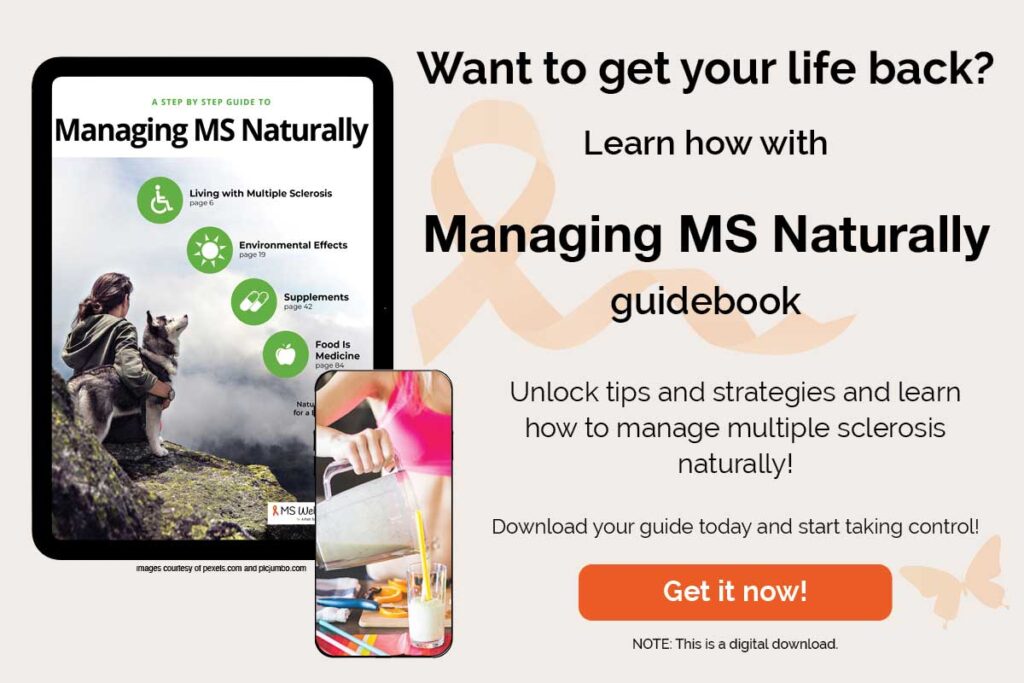Last Updated on January 27, 2025 by Cathy

Ever feel like multiple sclerosis (MS) has stolen your life? Like the person you used to be is buried under layers of fatigue, pain, and endless “what ifs”? You’re not alone. MS has a way of shaking up everything—your health, your plans, even your identity. It’s frustrating, scary, and sometimes downright heartbreaking.
Maybe you’ve caught yourself thinking, Why me? Or I just want my old life back. It’s okay to feel that way. Grieving the life you once had doesn’t make you weak—it makes you human. You’ve been through a lot, and it’s only natural to feel stuck, overwhelmed, or even a little lost.
But what if I told you there’s another way to look at all this? A way to shift your mindset and start seeing MS not as a dead end, but as a new path?
What Causes MS?

MS is often labeled as an autoimmune disease. This means your immune system mistakenly attacks healthy parts of your body. In MS, it targets myelin—the protective covering around your nerves. Without that shield, messages between your brain and body get scrambled or blocked.
I actually never believed this. Why would my body suddenly start attacking itself? They say your body is amazing and works hard to protect you so why would it attack itself. It doesn’t make sense. I always believed my body was attacking something inside and my CNS got caught in the middle.
So, what causes MS? It’s not one simple thing. MS develops from a mix of factors. Yes, some people are more likely to get it because of their genes. But MS is not a hereditary disease.
The main cause of MS is due to environmental factors. Things like infections, low levels of certain vitamins (like D), and even habits like smoking can increase your risk.
One major discovery has shaken up how we think about MS. A 20-year study found a strong link between MS and Epstein-Barr Virus (EBV)—the virus that causes mono. Researchers believe EBV might actually trigger MS in people who are already at risk. This is a huge breakthrough. It helps us better understand what’s happening in the body. This opens the door to new ways of thinking about treatment and prevention.
To learn more about the study read Epstein-Barr Virus Is The Leading Cause Of MS.
Understanding MS is the first step toward taking back control.
Fear and Discouragement

Image by Freepik
Fear and discouragement can hit hard, especially when you’re dealing with MS. They show up in those frustrating moments—when you’re struggling to walk, after a fall, or even just trying to put your socks on. It’s easy to feel like your strength is slipping away. But you don’t have to stay stuck in those feelings. You can take steps to shift your mindset quickly and regain control.
First, take a deep breath. Fear feeds on overwhelm. By slowing your breath, you calm your nervous system and give your mind a chance to reset. It might seem small, but it’s powerful.
Next, focus on what you can control. MS can make life feel unpredictable, but there are always things you can influence. Maybe it’s sticking to your healthy routine, practicing gratitude, or simply getting outside for a few minutes. Small wins matter, and they add up.
When discouragement creeps in, remind yourself that setbacks are part of the journey. Everyone stumbles—it doesn’t mean you’ve failed. Try reframing those tough moments. Instead of thinking, I can’t do this, tell yourself, This is hard, but I’m stronger than I think. Positive self-talk can change the game.
Finally, lean on support. Whether it’s a friend, a loved one, or even an online community. Connecting with others reminds you that you’re not alone. Fear loses its grip when you share your load. – Be careful not to join a negative group.
You’re stronger than your fear. One step at a time, you can move forward.
Choose the Right Mindset

Image by Freepik
Living with MS is hard. Sometimes, it feels like everything you love has been taken away. And it’s not just the physical challenges—it’s the emotional ones, too. I’ve seen people with MS go to a very dark place emotionally. It’s tough for them and for the people around them.
If you’re feeling this way, please consider reaching out to a therapist. There’s no shame in getting help. After my son was diagnosed with type 1 diabetes, we went to therapy, and it made a big difference.
If there’s one thing that can improve your life with MS, it’s your mindset. It’s about facing challenges head-on, even when life feels heavy. With the right mindset, you won’t just survive—you’ll thrive.
First, embrace a never-give-up attitude. MS will throw curveballs, but don’t let setbacks define you. Focus on what you can do instead of what you’ve lost. It’s not about ignoring the hard stuff; it’s about refusing to let MS control your life.
I’ve always tried to see the bright side. That doesn’t mean it’s been easy. There have been moments when I’ve felt frustrated and angry about living with MS. But here’s the thing—I don’t let myself stay there for long.
Next, stay curious. Keep learning and looking for new ways to manage your symptoms. I’m always trying new approaches—some work, some don’t, but I keep going.
And don’t underestimate the power of gratitude. It may sound simple, but finding one small thing to be grateful for each day can help. It shifts your focus from what’s wrong to what’s right.
Finally, believe in your ability to adapt. MS may change the rules, but you can change, too. Every challenge is an opportunity to grow stronger and more resilient. Progress, not perfection, is what counts.
To learn more about keeping a positive mindset set read The Power Of A Positive Mindset.
Finding Support

Image by Freepik
Building a support system when your friends and family don’t fully understand MS can feel lonely. But you don’t have to face this journey alone. There are people out there who get it—you just need to find them.
Start by looking for MS communities online. Social media, forums, and support groups can help you connect with others. They understand exactly what you’re going through. These spaces offer more than advice; they’re where you’ll find encouragement and a sense of belonging.
Local support groups can also make a big difference. Many communities host in-person meetings for people with MS. It’s a chance to share your experiences and ask questions. A time to build friendships with people who understand your challenges firsthand.
Another option? Create your own circle of support. Reach out to people in your life who are good listeners, even if they don’t fully understand MS. Share what you’re comfortable with and explain how they can support you. Sometimes, people just need a little guidance on how to help.
Lastly, don’t forget about professional support. Therapists can provide tools to manage stress and feelings of isolation. When I was looking for a therapist for my son’s struggle with T1D, I called around. I eventually found a therapist whose husband also had T1D. She knew from experience what he was going through, which made my son feel more comfortable. Finding someone who truly understands your journey can make all the difference.
You don’t have to go through MS alone. By reaching out to others, you’ll build a strong support system that helps you thrive.
Enjoy Your Life

Image by Freepik
Living with MS doesn’t mean you can’t enjoy your life. In fact, finding joy in the little things can make your healing journey even more powerful. It’s about learning to embrace life, even with its challenges.
Start by focusing on what makes you happy. One of my favorite things to do is sit in my rocking chair on the front porch. I live in a rural area, so it’s quiet. I listen to the sounds of nature, feel the breeze, and soak up the warmth of the sun. It’s incredibly relaxing and healing. Moments like these remind me that life is still beautiful.
Next, celebrate your progress—no matter how small. Did you stick to your wellness routine today? That’s a win. Did you try something new, like a different recipe or a gentle exercise? That’s progress. Every step forward is worth celebrating.
Also, don’t forget to treat yourself. Self-care isn’t selfish—it’s essential. Take time to do things that make you feel good, whether it’s reading a book, or indulging in a hobby you love.
Finally, try to stay present. Worrying about the future or dwelling on the past can steal your joy. Focus on today and what you can do right now to feel good.
Your healing journey doesn’t have to be all about the hard work. Find ways to enjoy the ride. The more you can embrace joy and self-care, the stronger and more resilient you’ll feel.
Life With MS

Image by Freepik
Living with MS is tough, but it doesn’t have to define your life. You have the power to take control, make changes, and find joy in your journey. It starts with your mindset—choosing to focus on progress, not perfection. Every small step you take towards better health and well-being is a victory.
Remember, you’re not alone. Building a support system can provide the encouragement and understanding you need. Surround yourself with people who lift you up and celebrate your wins, no matter how small.
Don’t forget to take time for yourself. Prioritize self-care and find those moments that bring you peace and happiness. Whether it’s sitting quietly outdoors, exploring new hobbies, or simply practicing gratitude, these little things can make a big difference.
Your healing journey won’t always be easy, but it’s worth it. You’re stronger and more resilient than you realize. With the right mindset, support, and a focus on joy, you can thrive—not just survive—with MS.
So, take a deep breath, believe in yourself, and keep moving forward. You’ve got this.

Reclaim your life and discover the secrets to Managing MS Naturally!
To learn more click here: Managing MS Naturally.

Want to remember this health tip? Pin it to your Pinterest board!

Thrive with MS: Strategies for a Better Life





